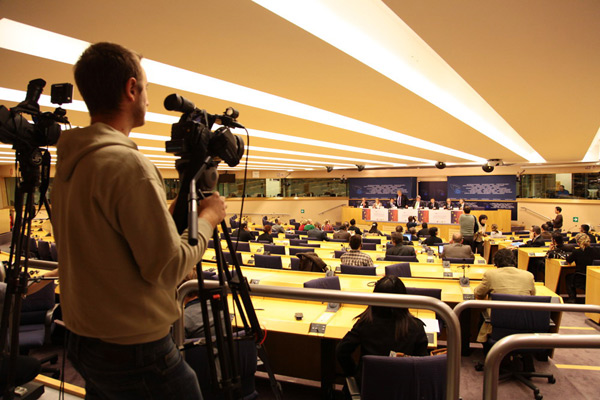China-Europe political party forum closes
Updated: 2011-11-10 21:06
By Feng Xin (chinadaily.com.cn)
|
|||||||||||
|
 |
The three-day forum was co-hosted by five European political groups. A delegation of the Communist Party of China (CPC) met dozens of their European counterparts at the form. Participants discussed various issues between China and Europe under three headlines: Europe-China Cooperation, Sharing Experience and Global Governance.
Li Jinjun, vice-minister of the International Department of the CPC (IDCPC), said in a press conference that the five European political groups represent the political spectrum of Europe.
Leaders from the European People's Party (EPP), Group of the Progressive Alliance of Socialists & Democrats (S&D), European United Left/Nordic Green Left (GUE/NGL) in the European Parliament, European Liberal Democrat and Reform party (ELDR) and European Green Party (EGP) expressed their willingness to strengthen links with China in various areas of cooperation, including economy, trade, technology as well as education and culture.
"Only by working together, can we solve problems," Li said.
Another highlight of the forum, Li said, was Chinese leader Liu Yunshan’s keynote speech at the opening ceremony.
Liu, member of the Political Bureau of CPC Central Committee and minister of the Publicity Department of CPC, said the current economic crisis was a reflection of the weaknesses in global governance. China and Europe need to find solutions and establish a new system that combines both fairness and efficiency.
According to the IDCPC, the First China-Europe High-Level Political Parties Forum took place in 2010, and participants from both sides have since been working on establishing a regular channel of inter-party exchanges.
Hot Topics
HIV/AIDS, Egypt protest, Thanksgiving, climate change, global economic recovery, home prices, high-speed railways, school bus safety, Libya situation, Weekly photos
Editor's Picks

|

|

|

|

|

|







